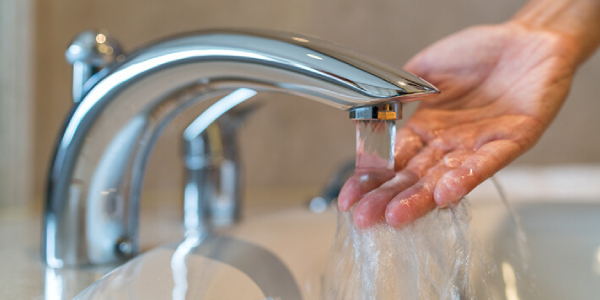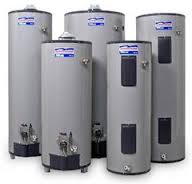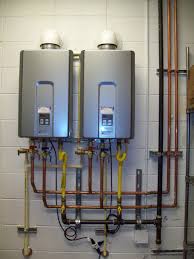Trouble Shooting Water Heaters
 Professional Plumber’s guidance on the way to troubleshoot and take care of a electric or gas hot water heater
Professional Plumber’s guidance on the way to troubleshoot and take care of a electric or gas hot water heater
Water heater difficulties normally become very clear very quickly! A hot water faucet fails to summon hot water, you see dripping or puddles near the water heater, or the tank emits strange gurgling or popping sounds.
Though many gas utility companies will make a free house call to solve difficulties with a gas water heater’s burner or the gas supply to the tank, it helps to know how to solve basic outages yourself. For more difficult issues, contact a qualified local hot water heater repair person.
 Typical water heater complications include a leaking tank, not enough hot water, water that is too hot, water that is not hot enough, strange noises in the tank, and discolored water. Most water heater problems are easier to diagnose and relatively easy to handle if you understand how they work. For more about this, see How a Storage Water Heater Works.
Typical water heater complications include a leaking tank, not enough hot water, water that is too hot, water that is not hot enough, strange noises in the tank, and discolored water. Most water heater problems are easier to diagnose and relatively easy to handle if you understand how they work. For more about this, see How a Storage Water Heater Works.
Note: Leaking natural gas can be dangerous. If you smell natural gas (it smells a bit like garlic) near the water heater, shut off the pilot light, close the gas shutoff valve, and call a plumber or your gas utility company for assistance. See our information on gas leaks.
How to Flush & Drain a Water Heater
 Before draining and flushing your water heater, turn off the gas or electric power (depending on whether it is a gas or electric water heater) and let the water cool a little. Close the incoming water valve and attach a hose to the drain valve to run the water into a large bucket or to a drain or the outdoors.
Before draining and flushing your water heater, turn off the gas or electric power (depending on whether it is a gas or electric water heater) and let the water cool a little. Close the incoming water valve and attach a hose to the drain valve to run the water into a large bucket or to a drain or the outdoors.
Open the drain valve and open one hot water faucet somewhere in the house to let in air. When all water has drained from the water heater, turn the cold water valve on and off until the water from the drain runs clear. Then close the drain valve and the hot water faucet, open the cold water valve, and turn the water back on.
 This is also a good time to test the temperature-pressure relief valve, which keeps pressure in the boiler from building up too much. Lift or lower its handle. Water should drain from the overflow pipe.
This is also a good time to test the temperature-pressure relief valve, which keeps pressure in the boiler from building up too much. Lift or lower its handle. Water should drain from the overflow pipe.
Water heater tips
* Always disconnect power to an electric water heater before working on it.
* Set the temperature control to about 150 degrees F. or lower if you have no dishwasher or if you have small children or elderly people in the home who might scald themselves for safety reasons.
* Do not work on an electric water heater if there is standing water pooled on the floor near the appliance. Shut off the circuit to the water heater and call a professional plumber..
* To minimize the energy it takes to heat the water, insulate your water pipes if they run a long way from your heater to your faucets. Also consider installing a point-of-use water heater.
